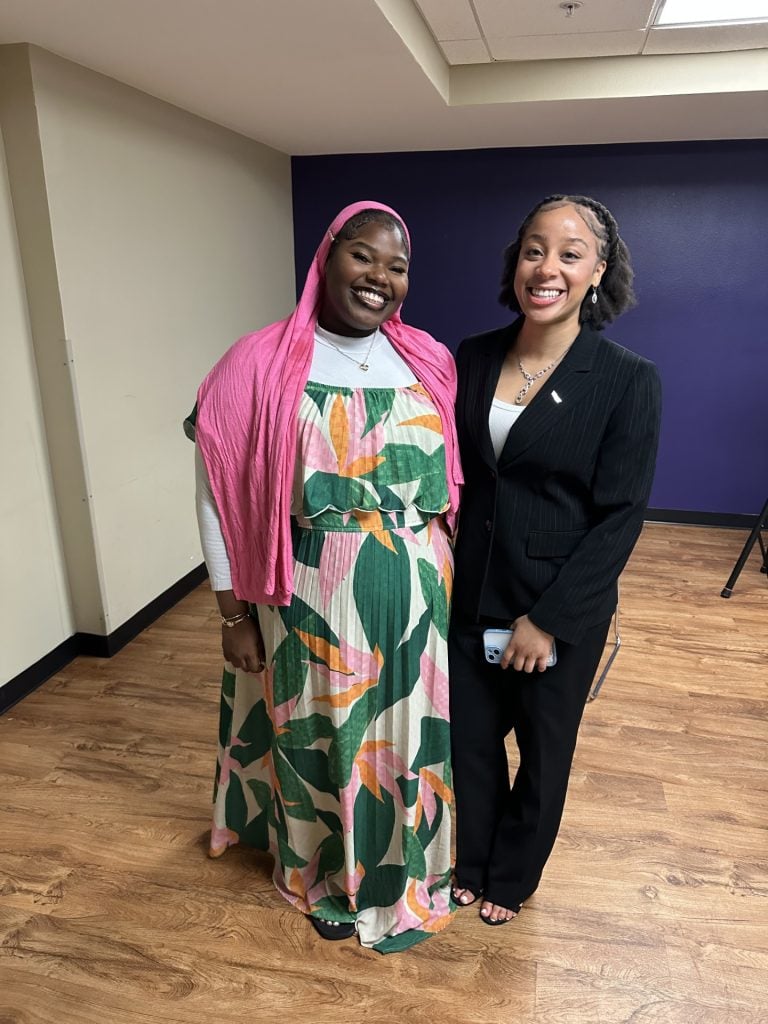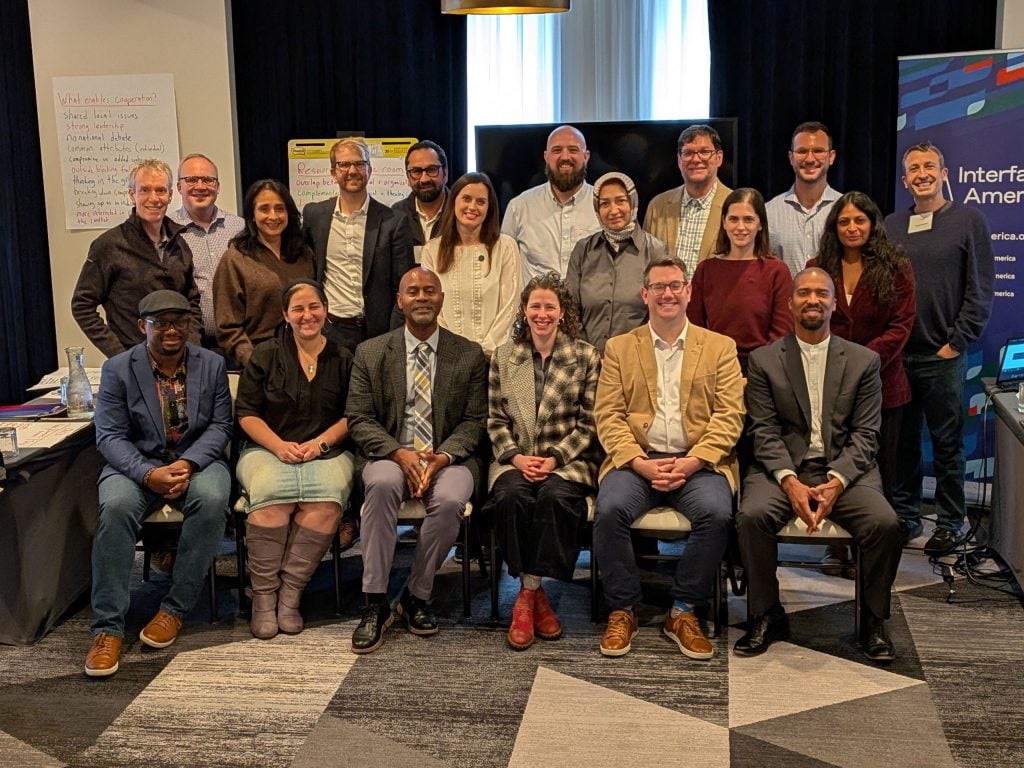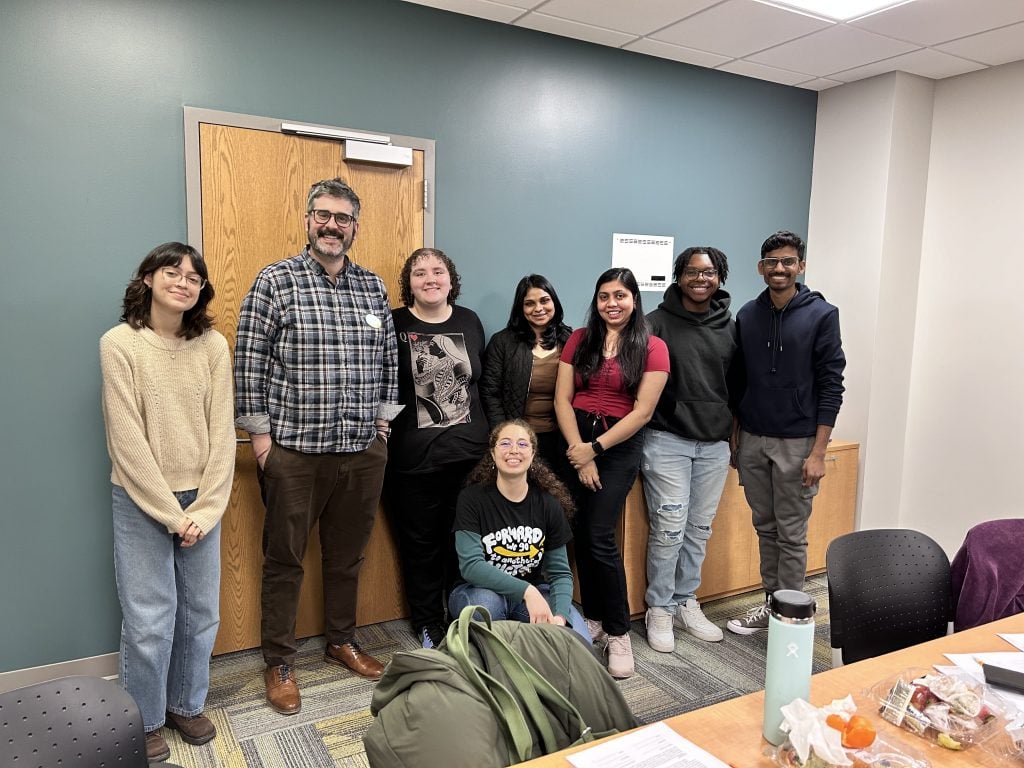The first time I joined a Lighthouse Christian Fellowship executive board meeting at Ithaca College, I expected a uniform group — mostly evangelical, maybe a mainline Protestant or two. Instead, I found Catholics and Protestants collaborating with striking unity.
I wasn’t surprised that a mix of students attended events; that’s common. But leadership diversity? That felt different. These students weren’t just coexisting — they were collaborating, sharing ideas and responsibilities, even bridging traditions by attending one another’s services. The Catholic Community hosted weekly Mass, and several non-Catholic Lighthouse board members joined. There was real cross-pollination, and the group’s ambition was clear: they weren’t content to exist — they wanted to flourish, and they had the plans to make it happen. Several student leaders didn’t claim a specific denomination — they were simply, proudly Christian. I was reminded of the hymn from my Catholic school days, “We Are One in the Spirit.”
As a Jewish professional and a convert, I found myself unexpectedly moved. Their example of unity stirred something in me — not a longing to return to Christianity, but a curiosity about what I still carried from Jesus’ life and teachings. My own Christian past never fit a neat category: I grew up in a Protestant family but was formed in Catholic schools. That gray space shaped my earliest imagination of God and even now, I wondered what of that remained. I thought of how many Jewish students I’d met whose connection to Judaism was cultural or ancestral rather than strictly religious. If family heritage can root identity that way, then surely I could still honor my family’s story — shaped by Christ for generations — without feeling “less Jewish.” In fact, to some, Jesus’ life looks profoundly Jewish: an ethical teacher, a bearer of moral imagination. That reflection didn’t dilute my Jewish identity; it deepened it.
Finding a Name for What I Saw
Early in my time as Interim Director of the Office of Religious and Spiritual Life, I reached out to someone I trusted but hadn’t spoken to in years: a Lutheran minister who had been campus chaplain at Capital University, where I first entered Jewish life. I wasn’t trained as a chaplain. My background was in operations and programming, and this role felt different. I could strengthen a young office’s structure, but I was also entrusted with responsibilities I’d never faced — like planning the college’s first campus-wide memorial for community members lost over the past year. It became a profound experience, attended by the president and grieving families.
That conversation also gave me something more: language. The Lutheran chaplain who once supported my efforts to build Jewish life at Capital told me about Springtide Research Institute and its concept of “Faith Unbound” — the idea that many young people are no longer confined by inherited categories. They don’t see faith as a single container but as a river fed by many streams.
Springtide calls this “not accepting the whole bundle” of beliefs and practices that institutions offer. Instead, young people curate faith from multiple sources — mixing rituals, values, and even art or activism — rather than inheriting a single system. When I read that, I thought: This isn’t just what I see in students. This is me.
Why It Resonated So Deeply
I became Jewish at age 19 for many reasons, but one was theological: I couldn’t reconcile the Christian framing of original sin, which I saw as casting humanity into a separation from God that felt unjust. Judaism offered something that felt more hopeful: no inherited curse, no obligation to forgive when wrongdoing is still occurring, no assumptions that each person starts with anything aside from a blank slate. These were radical, liberating ideas for me as a teen and they still are.
So I converted. And yet, like many Jews today, my story doesn’t fit tidy categories. I married someone who isn’t Jewish. I carry a name that frequently raises questions. Sometimes I’ve been told I “don’t look Jewish,” as though there were only one way to look. But at Ithaca, I found a different story: a Hillel that modeled openness and depth, a Jewish community unafraid to include those on the margins. It was a vision of belonging that embraced complexity. I moved to this community after college to work for two years as a Springboard Fellow through Hillel International.
A few years later, as interim director, I also saw a Muslim Student Association whose devotion reminded me that reverence still thrives on college campuses and whose leadership partnered across differences with grace. Together with Lighthouse’s ecumenical spirit, these groups showed me something I couldn’t unsee: faith today is not smaller. It’s wider.
“Faith Unbound” affirmed what I knew in my heart: my own spiritual life, rooted in Judaism yet shaped by interfaith friendships and family heritage, wasn’t an anomaly. It was part of a generational pattern: seeking, integrating, and refusing to let labels be limits. This isn’t faithlessness; it’s agency.
What Religious Communities Need to Understand
This isn’t a trend to debate. It’s a reality. And ignoring it sets anyone back who wants to engage meaningfully with the next generation.
Surveys confirm what I witnessed: Gen Z isn’t abandoning spirituality — they’re rebuilding it, sometimes outside formal institutions but often longing for community. Digital access makes it easy to learn any tradition alone, but students still crave spaces to belong together.
If communities respond with gatekeeping, they’ll become irrelevant. If they respond with openness, they’ll become havens. That doesn’t mean discarding depth or doctrine; it means making room for those who come with complex stories, hybrid identities, and questions bigger than any single tradition.
This isn’t new. Faiths have long adapted during every era. Our traditions are full of surprises. In Judaism I have found many stories of conversions taking place in the absence of established Jewish communities, from San Nicandro in Italy, to the B’nai Moshe of Peru, to the Abayudaya community in eastern Uganda. Today’s seekers are not faithless. They are faith-full — just differently.
Carrying It Forward
I left Ithaca sooner than I hoped — my husband’s career took us to Rochester — but the learning didn’t stop. Recently, I attended a panel at the Rochester Academy of Medicine on interfaith responses to pediatric end-of-life care. A heavy topic, but one I wanted to hear about as part of my work supporting the university’s neurology and neuroscience programs. One audience member asked: What does your tradition say when a medical decision leads to death?
One physician, a Muslim, answered with a principle from Islamic ethics: “Actions are judged by their intent.”
That phrase struck me — so different from the warning I once heard that “the road to hell is paved with good intentions.” It reminded me of the strength I’d seen in Ithaca’s Muslim students — and why interfaith dialogue matters: wisdom isn’t proprietary. It flows across boundaries when we choose to listen.
From a Christian fellowship board to a hospital ethics discussion, I keep seeing the same truth: openness doesn’t weaken commitment; it deepens it. Faith unbound is not the end of belief. It’s the next chapter — a chapter that asks us to widen our tents, lengthen our tables, and trust that we will not lose ourselves. We will find each other.
Austin Reid Albanese is a historian and writer dedicated to uncovering overlooked stories—especially those rooted in Jewish life, civic memory, and small-town American experience. Albanese currently serves as Assistant Director of Advancement for Neuromedicine at the University of Rochester Medical Center.




